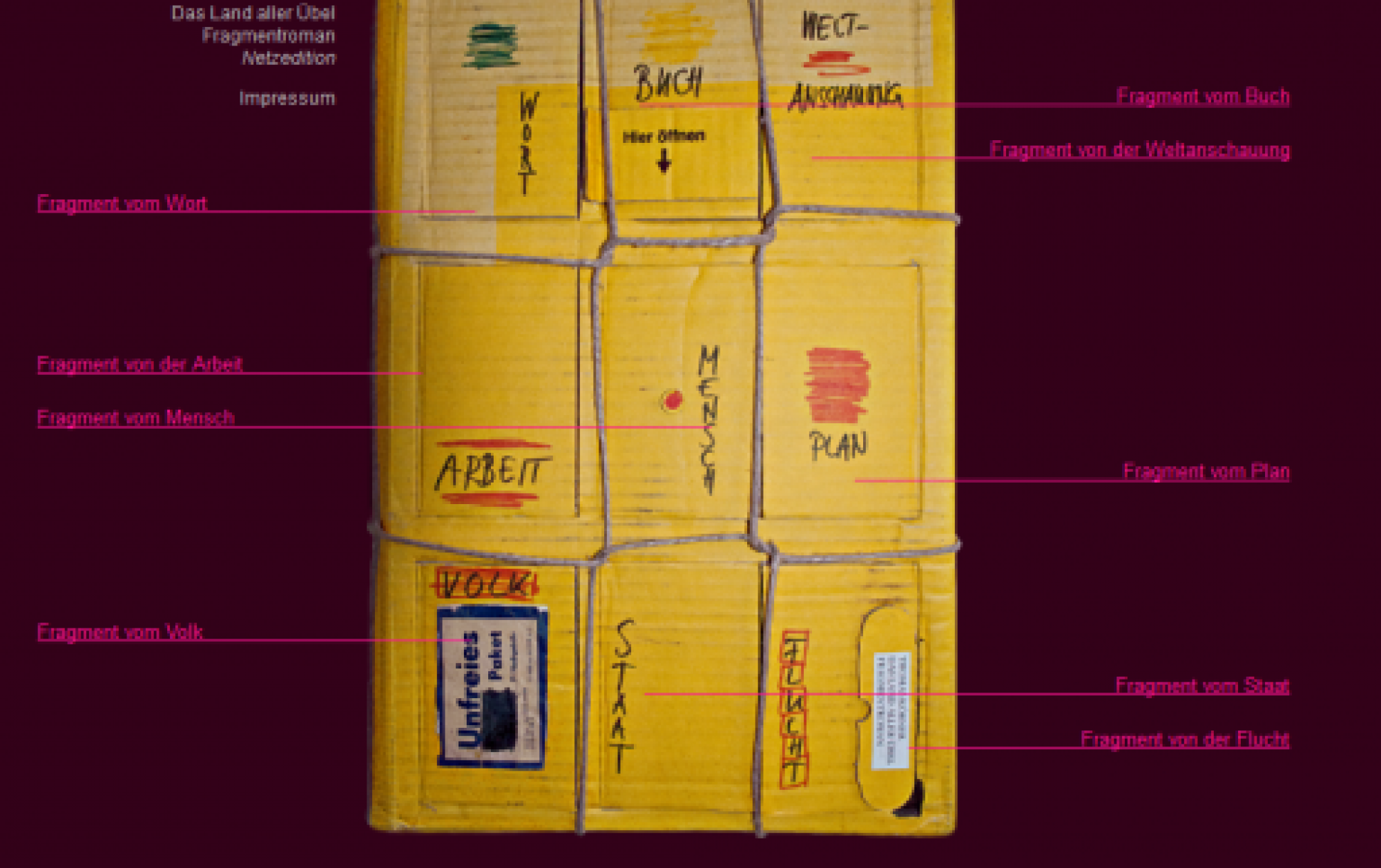In the 1990s there was a lot of research into what belongs to GDR literature. Already in the 2000s it became more and more quiet about such apporaches. Now, 30 years “after”, a return is getting underway and considerations are taking place as to how one could see GDR literature from another side again: At a conference in May next year at the Literaturhaus Halle, the journalistic style- literature of the GDR become a topic.
As one of the mian topics to be examindes once again they recall the modernity of GDR literature, which is supposed to hae originally been based on a primordial democratic intention.
With his writing project entitled “The Land of All Evil” Thomas Körner had a democratic request. In particular, the reader can act and ponder autonomously (what Körner calls ensembling).
Contrary to all the literary regulations given by the cultural policy of the GDR or the SED-party or the GDR#s own association of writers, Thomas Körner implemented his own ideas of literature from the start and wrote on his project which, after careful consideration, he titled fragmentary novel.
Why novel ? Because it is the freest form to date in which the writer can work. Körner ist – and remains – looking for a new genus.
Why fragmentary? Not because the novel has remained a fragment, it is not, it is completed according to Körner’s view.
Why fragmented? Not even because the novel is made up of socalled fragments (which can also be seen as chapter?)
Fragment, because the reader views or can form his own (text) fragments by himself.
Fragment, because the reader reads a (fragmented) part from the whole project.
In the GDR was literature censored, at least controlled after it had migrated through regulations from publishing institutions to cultural-political committees. From the regulations, the “reading country” GDR and its democratic readership formed a (country-typical) canon which, als Matthias Buchholz, the archivist of the “Federal Foundation for the Processing of the SED Dictatorship” confirms, can not be broken at all. Reading memories cannot be remodeled after 30 years.
That is why literature that was not or less read in the times of the GDR – or could not be read at all because it had to be kept hidden – will never get the chance to “belong to”.
But Thomas Körner’s fragmentary novel should not be viewed from this perspective either.
From the outset, his intention was to design and create new literature that is different from what is has been before.
He wanted to use innovative techniques and design forms derived from graph theory (structures and algorithms) when writing and, last but not least, publish them digitally on the screen. For Körner’s writing project, the new research of old GDR-literature or its parts is not a starting point, but one has to revisit the discussion about new literature genres on the Internet, which fell asleep at the end of the last century.
